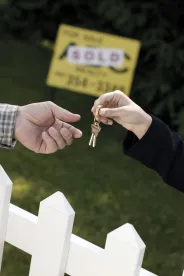Introduction
“You don’t know what you don’t know” is a popular catchphrase. So, do you know what a “betterment” is and how the law of betterments operates?
Land use law has ancient roots. Sometimes, a case requires an appellate court to write a 21st century opinion explaining and summarizing ancient legal concepts and law. These opinions provide an important service to the practicing bar because they remind lawyers of legal principles which they may have heard, but do not fully appreciate. Unless you know these ancient roots, you don’t know what you don’t know.
A Primer on the Law of Betterments
In the case of Harris v. Gilchrist, ___N.C. App. ___, ___ S.E. 2d. __ 2016WL787933 (March 1, 2016), the North Carolina Court of Appeals applies the law of betterments to two classes of defendants. In Harris, the defendants had been non-owner occupants, but later became tenants in common with the plaintiffs. The Court of Appeals’ opinion discusses the law of betterments and explains the reasons for this law applying differently to these two classes of defendants. As such, Harris is a modern primer on the law of betterments.
Facts
The defendants were non-owner occupants who believed they owned land, built a house on the land, resided in the house and paid property taxes and insurance. When the true owner died and the deed by which the defendants claimed ownership of the land was declared void, the defendants became tenants in common with the plaintiffs.
Several of the tenants in common filed a petition for partition of the property by sale. After the property was sold, the trial court entered an order allowing a betterment allowance for the house and reimbursement of taxes and insurance in favor of the defendants. The trial court denied the plaintiffs’ request that they recover three (3) years of rent from the defendants. The plaintiffs appealed the trial court’s order to the North Carolina Court of Appeals.
Decision
In a clearly written opinion by Judge Dillon, the Court of Appeals affirms in part and reverses in part the trial court’s order. The Court of Appeals explains the law of betterments as it applies to two classes of defendants—non-owner occupiers and tenants in common.
-
A betterment is a permanent improvement affixed to land owned by others.
-
Under the equitable doctrine of ex aequo et bono (“according to the right and good”), a tenant in common who made a “betterment” to real property owned by other tenants in common was entitled to an allowance.
-
By statute adopted in 1871, the General Assembly extended “the right and good” of equity to non-owner occupants holding land under color of title that the non-owner occupant believed to be good title. Under the statute, a betterment is exclusively a defensive right arising in a proceeding where the true owner of the land invokes the court’s powers to secure possession of the land. A betterment allowance is intended to compensate a person who has mistakenly made permanent improvements, in good faith, to the land the occupier did not own.
-
-
Under the statute, the amount of the allowance equals the lesser of either (1) the costs of the betterment or (2) the incremental increase in value of the land caused by the betterment. The incremental increase in value is the difference in the value of the land with the permanent improvement minus the value of the land without the permanent improvement (land value with permanent improvement – land value without the permanent improvement = incremental increase in value).
-
Balancing the scales of justice requires consideration of the rent which would have been due to the true owner:
-
A tenant in common who occupied the land is not liable for rent so long as the tenant has not prevented the other tenants from accessing the land.
-
A non-owner occupant possesses no land rights and owes three (3) years of the fair market rent accruing before the true owner filed a legal action seeking possession of the land. Rent accruing more than three (3) years after the filing of the owner’s action is only an offset to a betterment allowance.
-
-
Balancing the scales of justice requires consideration of contributions made by the person who made the betterment:
-
A tenant in common is entitled to reimbursement for paying taxes and insurance assessed against property owned by tenants in common.
-
A non-owner occupier is not entitled to reimbursement for paying taxes and insurance assessed against another person’s property.
-
Comments
-
With modern surveying exactitude, it is rare in the 21st century for a person to build an improvement on another person’s property because of a defective survey. But, people do mistakenly assume that they own property. In those situations, betterments may be their only relief for investing hundreds of thousands of dollars on another person’s land.
-
Harris illustrates broader and more important lessons:
a. First, the law is deep and wide. Law, the body of legal rules, principles, and doctrines, has developed to administer justice “according to the right and good.” While the legal system is imperfect, most times injustices arise from the imperfections of people operating in the system – not the system itself.
b. Second, when you encounter a case which seems unfair, then, most likely, you have not thought deeply enough about the facts or researched diligently enough to find the exact law which fits the unique facts of the case. As Harris illustrates legal rules, principles, and doctrines are nuanced and a single factual difference may completely alter the outcome of a case.
Bottom line: When you don’t know what you don’t know, you cannot blame the legal system.




 />i
/>i

